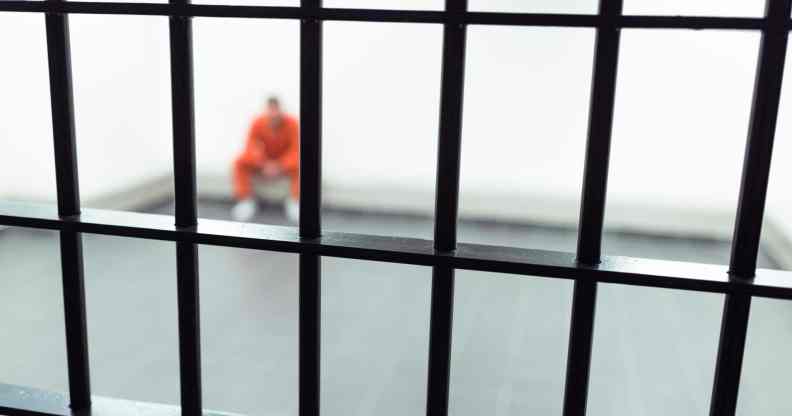Prisons are ‘traumatising and dangerous places’ for LGBT+ inmates, eye-opening study finds

(Stock photograph via Envato Elements)
Prisons in England and Scotland are “traumatising, rigid and frequently dangerous places” for LGBT+ inmates, research has found.
A report from the University of Dundee titled LGBT+ people in prisons: Experiences in England and Scotland, used interviews and focus groups with more than 60 prison staff and LGBT+ inmates to “examine how individual attitudes and social interactions as well as institutional policies and structures in English and Scottish prisons might be shaped by discrimination and lack of understanding, and how this influences the experiences of LGBT+ people in custody”.
Researchers found that discrimination and violence against LGBT+ prisoners was “often dealt with by segregating the affected individual for their own protection”.
However, these measures left LGBT+ inmates effectively punished for others’ hatred towards them.
“Regardless of any assertions by prison managers and administrators that they are acting in the best interests of the LGBT+ person,” researchers said, “the reality of the experience of the person is that they are being punished for their identity, and this has a chilling effect on both their willingness to disclose anything about themselves and on their overall mental health.”
Unfortunately, they added, segregation of LGBT+ prisoners was much more cost-effective than changing the “underlying culture of a whole institution”.
The report also said there was a lack of support for LGBT+ prisoners on issues related to them being LGBT+, which was partly down to a lack of knowledge on LGBT+ issues among staff.
However, one trans inmate told researchers: “I think that management is only a small problem with it.
“I think the bigger problem is how the prison system is set up, it’s not set up to support LGBT+ prisoners as an independent unit.
“It’s set up to support them almost kind of half-a*sed like, ‘Yeah, OK, we know what you are, but we don’t really care.'”
When support was available in prisons, it was usually provided by other LGBT+ inmates as representatives within their prisons.
However, many in those roles felt unprepared for the responsibility, with one inmate saying: “I wouldn’t say I’m an expert, but they seem to think I am, they’ve got me supporting all these trans women and men in other jails.”
Researchers are calling for widespread reform, insisting that the needs LGBT+ inmates must be considered and incorporated into every element of prison life.
According to Deadline News, Dr Fernando Fernandes, co-author of the report, said: “Despite a good policy framework, our research shows that prisons are inherently traumatising, rigid and frequently dangerous places, particularly for those who identify as LGBT+, as these needs are often ignored or minimised.
“This is due to widespread lack of understanding and institutional culture that is not prepared to accommodate LGBT+ needs in their agenda and everyday practices.
“To address this issue it is necessary to develop systematic and reflexive learning approaches in which the whole system incorporates LGBT+ rights and needs into everyday practice.
“In the cases when deprivation of liberty is a last resort, prisons need to be prepared to understand equality and diversity to provide the necessary support LGBT+ people need, including their fundamental right to be themselves and not being penalised for that.”

